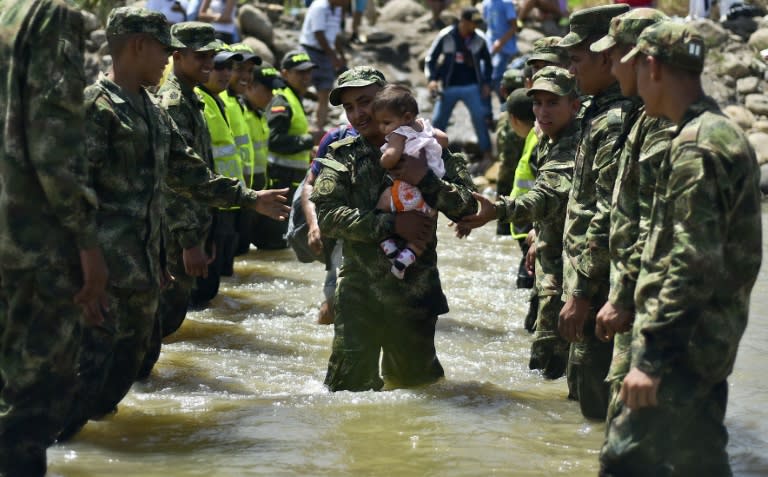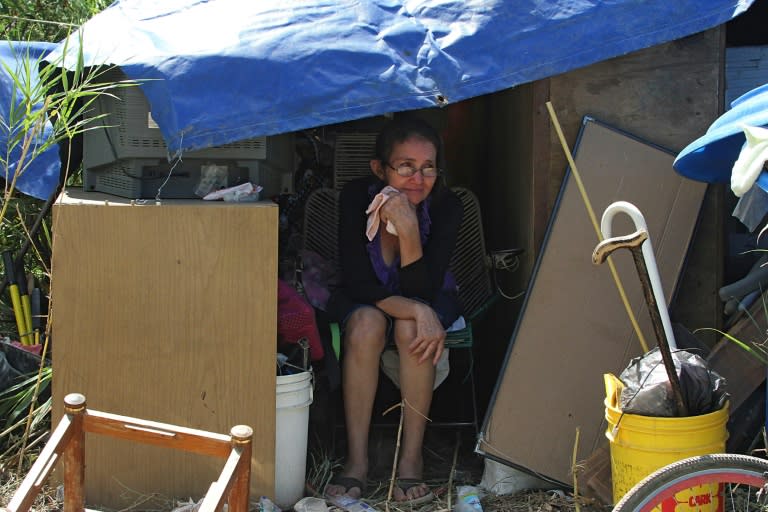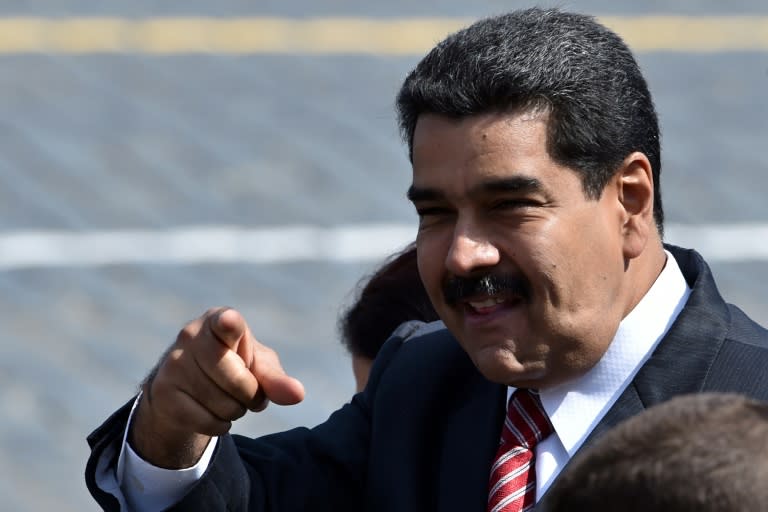Venezuelan row with Colombia an election ploy: analysts
The escalating row over Venezuela's mass deportations of Colombians is less about neighborly strains than the economic crisis, crippling shortages and dismal popularity ratings facing Venezuelan President Nicolas Maduro, analysts said Friday. The images of desperate Colombians streaming across the border with their belongings strapped to their backs captured international attention this week after Maduro's socialist government deported 1,000 Colombians and frightened thousands more into fleeing preemptively. But as Venezuela lashed out at Colombia, accusing it of turning a blind eye to smugglers, paramilitary fighters and drug traffickers operating in the border zone, experts said the crisis had more to do with domestic politics and the legislative elections Maduro's movement risks losing on December 6. "It's part of the smokescreen around the elections," said Francine Jacome, head of the Venezuelan Institute of Social and Political Studies. Maduro "needs to change the scenery, divert the focus of debate to an issue where he stands to gain something," said Luis Vicente Leon, the director of polling firm Datanalisis. "He can't win a debate on shortages, inflation, crime, falling output, declining investment, loss of confidence or the weakening currency," he told AFP. The diplomatic crisis erupted after unidentified assailants attacked a Venezuelan anti-smuggling patrol along the border, wounding three soldiers and a civilian. Maduro blamed the attack on Colombian right-wing paramilitaries. He immediately declared an emergency in six frontier towns and closed a highly trafficked portion of the border. He accused Colombia of waging "an attack on Venezuela's economy" -- a reference to the rampant smuggling of heavily subsidized food and other goods out of Venezuela, where more than five million Colombians live. - 'Humanitarian tragedy' - Venezuela has long used its oil wealth to fund price controls that keep basic goods like rice and toilet paper up to 10 times cheaper than in Colombia. Its gasoline, the cheapest in the world, is also a magnet for smugglers. But Venezuela is now mired in economic crisis, exacerbated by tumbling oil prices. After closing the border, the Venezuelan government launched mass deportations, unleashing what Colombia's interior minister decried as "a humanitarian tragedy." Most of the deportees were sent home for alleged documentation problems, without their families or belongings. Another 5,000 to 6,000 Colombians opted to flee rather than face the same fate. Many said Venezuelan soldiers had ordered them to leave within hours, marking their houses for demolition and stealing their belongings. Both countries recalled their ambassadors Thursday in response to the escalating crisis. The Organization of American States plans to discuss the standoff Monday, after Colombia called for regional governments to intervene. - 'Typical campaign' - The porous, 2,200-kilometer (1,400-mile) border has long been rife with guerrillas from the Revolutionary Armed Forces of Colombia (FARC) and National Liberation Army (ELN), as well as Colombian drug gangs and smugglers. The Colombian gangs include the remnants of right-wing paramilitary groups that once fought the guerrillas but were disbanded a decade ago. Many of the Colombians who live in Venezuela fled there to escape their country's half-century guerrilla war and the violent crime it has engendered. But Colombia insists it is not to blame for the current spat. "Venezuela's problems are Made In Venezuela," Colombian President Juan Manuel Santos said Wednesday. Political analysts backed him up. Maduro's anti-Colombian outburst is his "typical campaign behavior," said Leon. - Bare shelves - Polls indicate Venezuela's opposition is on track to win December's elections for the first time since Maduro's late mentor, Hugo Chavez, came to power in 1999. Maduro's popularity is hovering around 20 percent as he struggles with plummeting oil revenues, insufficient cash to buy the imports Venezuela depends on and inflation that some experts believe is now in the triple digits. For ordinary Venezuelans, the face of the economic crisis is the long lines they stand in to buy the most basic necessities -- only to finally get inside the supermarket and find the shelves are practically bare. Maduro wants to convince voters that "smuggling is the main reason for the shortages," said political scientist John Magdaleno. But after a week of the border closure, long lines still stretch outside stores in the border town of San Antonio del Tachira, where heavily armed soldiers stand guard over nearly empty shelves.





